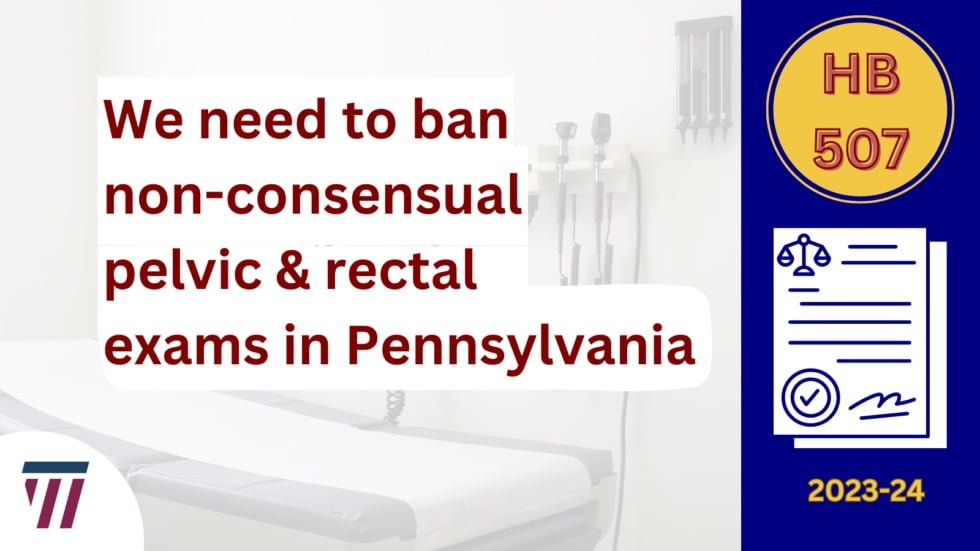“What they don’t know won’t hurt them” is a bitter pill for medical students to be dispensing to patients as they perform internal examinations of the most private body parts of a woman or man while unconscious or under anesthesia for other procedures.
Worse, these examinations are not being performed out of necessity but for the student to gain experience.
In Pennsylvania, exams of this nature are completely legal.
“Non-consensual pelvic, prostate, and rectal exams are deeply rooted in racism and sexism, violate a patient’s right to bodily autonomy, disproportionately affect women generally and Black women in particular, and harm medical students as well as patients,” stated the Women’s Law Project of Pennsylvania.
House Bill 507, introduced by Democratic State Representative Elizabeth Fiedler (H-184), seeks to stop this practice by requiring patient consent prior to these procedures.
According to Legiscan, Democratic State Representatives Tina Davis (H-141) and John Galloway (H-140) are the only Bucks County legislators to co-sponsor the bill.
This is not the first time Fiedler has introduced a proposal to protect vulnerable Pennsylvanians from this intrusive practice. In 2020 Fiedler and Democratic State Representative Liz Hanbidge (H-61) introduced House Bill 2246. That bill died in committee.
In a January 2020 op-ed published by Pennsylvania Capital Star, Fiedler and Hanbidge wrote:
“Our legislation will help protect patient’s rights and increase the trust that Pennsylvanians have in their medical care. We call on the General Assembly, in a bipartisan fashion, to stand with patients and end Pennsylvania’s outrageous practice of non-consensual, unnecessary pelvic, prostate, and rectal exams.”
Pennsylvania is far from the only state still permitting non-consensual internal examinations. A 2022 study published in MOST Policy Initiative revealed only 19 states have specific rules that prohibit unauthorized internal exams of females.
A 2019 Elle survey of 101 medical students from seven American medical schools found that 92 percent had performed a pelvic exam on anesthetized female patients, 61 percent of whom reported not having explicit consent from the patients.
“Arthur L. Caplan, the founding head of the division of medical ethics at NYU School of Medicine, believes that #MeToo, along with other cultural shifts, has helped draw attention to the fact that these unauthorized exams are still happening,” reported Vice in 2019. Caplan condemned the practice.A committee vote for House Bill 507 is scheduled for Wednesday at 10 a.m. in the House Health Committee.
The Women’s Law Project is encouraging Pennsylvania residents to contact Democratic Chair Rep. Dan Frankel (H-23) and Republican Co-Chair Rep. Kathy Rapp (H-65) to express support for House Bill 507 ahead of the vote, and to contact your state representative if they sit on the committee, so the legislation may move forward.






